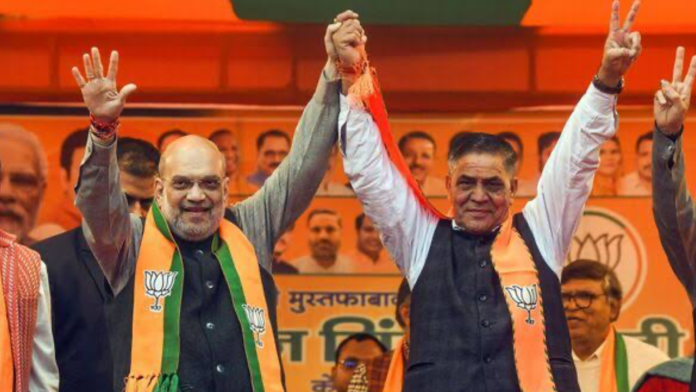New Delhi, February 10, 2025 – Mohan Singh Bisht, the newly elected BJP MLA from Mustafabad, Delhi, has sparked controversy with his proposal to implement the “Yogi Model” of governance in the constituency. His plans include tackling encroachments, addressing water supply issues, and renaming the area, moves that critics argue could disrupt the region’s social harmony.
Bisht has vowed to remove what he calls “rampant encroachments,” claiming they obstruct development. “Encroachments have increased significantly over the years, hampering progress. We will remove them,” he stated, adding that bulldozers would be used, echoing the controversial methods employed in Uttar Pradesh under Chief Minister Yogi Adityanath’s leadership.
Targeting the Aam Aadmi Party (AAP) government, Bisht accused it of failing to act on a water supply agreement with the Uttar Pradesh government. He pledged to revive the deal to ensure sufficient water availability for Mustafabad residents.
On environmental concerns, Bisht proposed constructing a parallel drain along the Yamuna River to divert waste and curb pollution, a move aimed at improving the region’s cleanliness.
However, his statement on renaming Mustafabad to “Shiv Puri” or “Shiv Vihar” has drawn criticism, with many viewing it as an attempt to erase the area’s historical identity. Mustafabad, a Muslim-majority locality, has long been part of Delhi’s diverse cultural landscape, and such renaming efforts are seen as a direct challenge to India’s pluralistic ethos.
The so-called “Yogi Model,” characterized by aggressive demolition drives and an exclusionary approach, has been widely condemned for disproportionately targeting minorities. Implementing a similar strategy in Delhi could heighten communal tensions and threaten the city’s inclusive character. Many argue that governance should focus on development, infrastructure, and welfare rather than divisive politics that undermine the secular fabric of the nation.




